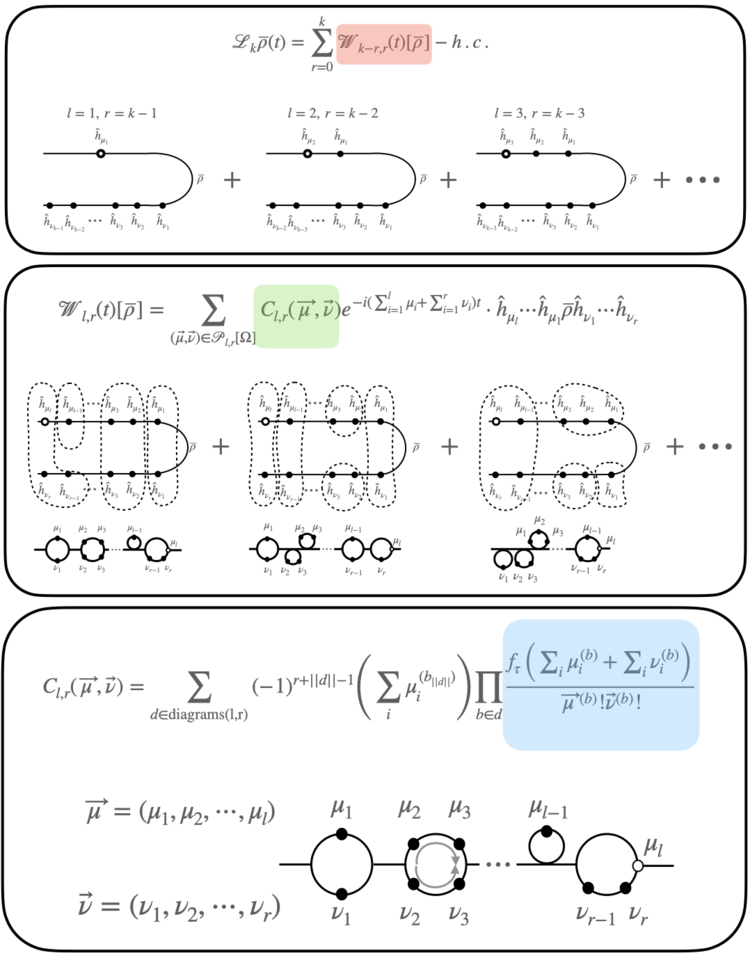
Systematic time-coarse graining for driven quantum systems
Type
Many recent advancements in quantum computing leverage strong drives on nonlinear systems for state preparation, signal amplification, or gate operation. However, the interplay within such strongly driven system introduces multi-scale dynamics that affects the long-time behavior of the system in non-trivial ways that are very difficult to model. Therefore, the analysis of these systems often relies on effective Hamiltonian models that introduce additional nonlinear processes which approximate the long-time dynamics so that highly oscillatory terms may be ignored. However, the removal of such high frequency transitions can only be performed rigorously within a systematic framework of time-coarse graining, which is a fundamentally irreversible operation. This implies that standard approaches with unitary effective models cannot accurately capture the long-time behavior of strongly driven nonlinear quantum systems in general. We introduce a systematic perturbation theory for obtaining the complete non-unitary effective model of the time-coarse grained (TCG) dynamics of a driven quantum system to any order in the coupling strengths. We derive a closed-form analytical formula for both unitary and non-unitary contributions, in the form of an effective Hamiltonian and non-unitary (pseudo-)dissipators. Remarkably, even though the effective theory presumes unitary time evolution at the microscopic level, the time-coarse grained dynamics is found to follow a nonunitary time evolution in general. This occurs even when there is no open heat reservoir for the system to become entangled with or dissipate into. We demonstrate the effectiveness of the new method using several typical models of driven nonlinear systems in superconducting circuits, and show that it generalizes and improves on existing methods by providing more accurate results and explaining phenomena that have not been accounted for.
